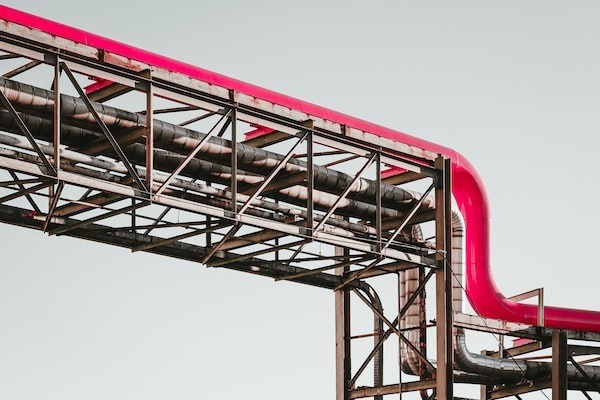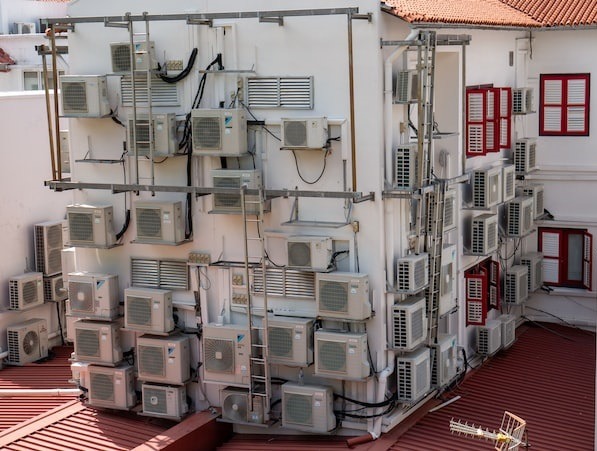How do heat pumps work in summer? Heat pumps are an efficient and cost-effective way to keep your home comfortable during the hot summer months. A heat pump is a device that uses electricity to move heat from one place to another. In the summer, a heat pump removes heat from your home and releases it outside. This helps keep your home cooler and more comfortable.
Heat pumps work by transferring heat energy from one place to another. Heat pumps use a compressor to pressurize refrigerant. The refrigerant is then circulated through a series of coils that absorb heat from the air inside your home. The refrigerant then travels to the outdoor unit where the heat is released outside. This article will explore how different types of heat pumps are suited to warm weather and how to get the most out of them. Keep reading to learn more.
Geothermal Heat Pumps
Geothermal heat pumps are a natural and environmentally friendly alternative to traditional heating and cooling systems. Geothermal heat pumps (also known as ground source heat pumps) use the earth’s natural heat to provide heating and cooling to buildings. They are an efficient, sustainable, and cost-effective way to heat and cool your home or business. Geothermal heat pumps are an excellent choice for any building, as they use the earth’s natural temperature to provide energy for heating and cooling.
The heat pump system works by drawing heat from the earth and transferring it to the building where it is needed. In the summer, the system reverses the process and absorbs the heat from the building, and then it transfers it back into the ground. Geothermal heat pumps are highly efficient since they use the earth’s natural heat rather than burning fossil fuels. This means that you can significantly reduce your energy consumption and save money on your heating and cooling bills. In addition to being an efficient and cost-effective way to heat and cool your home, geothermal heat pumps are also environmentally friendly. They do not emit any greenhouse gases or other pollutants, so they can help you reduce your carbon footprint.
Air-Source Heat Pumps
Air-source heat pumps are a type of heat pump that uses air as the source of energy instead of the ground, water, or other sources. They are considered to be the most efficient type of heat pump and are more cost-effective than other heating and cooling systems. Air-source heat pumps work by extracting heat from the environment, such as in the air outside, and transferring it into the home. This process is done by using a refrigerant to absorb the heat from the air and then compressing it to a higher temperature. The compressed heat is then released into the home to provide warm air. The cycle is then repeated to keep the home at a comfortable temperature. Air-source heat pumps can also act as air conditioning units, removing heat from the home and releasing it back into the environment. Air-source heat pumps are generally more efficient than other types of heat pumps, such as ground-source heat pumps, due to their ability to use the ambient air temperature as a source of energy. This means that the energy required to heat or cool a home is lower than with other types of heat pumps.
Absorption Heat Pumps
Absorption heat pumps, also known as adsorption heat pumps, are a kind of heat pump that uses a liquid refrigerant and a heat exchanger to transfer heat from one space to another. These pumps are commonly used in residential, commercial, and industrial applications for space conditioning and water heating. The absorption heat pump is a relatively efficient and cost-effective way to move heat from one place to another. Absorption heat pumps rely on a process known as adsorption, which is the process of a substance taking in, or absorbing, a gas or liquid from its surroundings. In an absorption heat pump, this process is used to transfer heat from one place to another. This is done by using a refrigerant that absorbs heat from the environment and then releases it in a controlled manner.
Overall, understanding the different types of heat pumps and their applications in summer conditions is essential for optimizing energy efficiency and achieving maximum comfort. Each of the above heat pumps has its advantages and disadvantages to review, but all are efficient for heating and cooling residential and commercial buildings.


